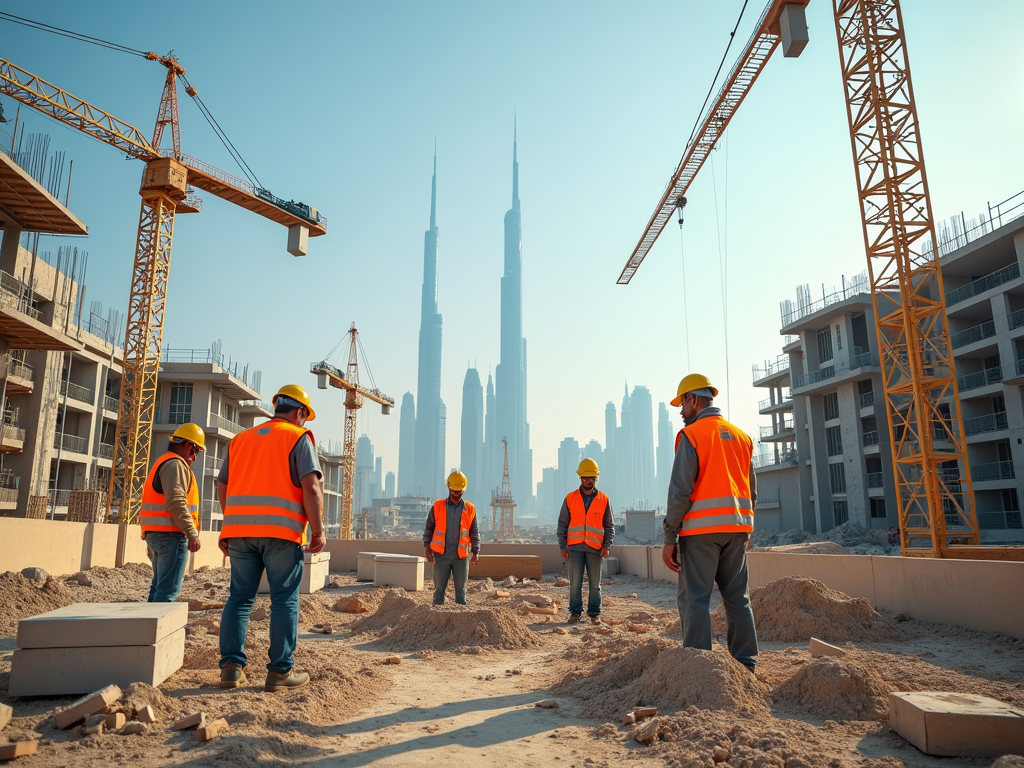Dubai is increasingly recognized as a leader in promoting sustainability through its circular economy initiatives. The circular economy focuses on maximizing the use of resources, reducing waste, and creating regenerative systems, which not only benefit the environment but also foster business growth. In this article, we will delve into how Dubai’s commitment to this innovative economic model acts as a catalyst for various sectors and promotes long-term viability for businesses operating within the region.
Understanding Dubai’s Circular Economy

The circular economy in Dubai encompasses a shift from the traditional linear model of “take, make, dispose” to a more sustainable approach that emphasizes the continuous reuse and recycling of materials. This paradigm shift is important for several reasons:
- Reduces environmental impact
- Promotes resource efficiency
- Encourages innovation in product design
- Increases community engagement and responsibility
- Creates new business opportunities
As part of its vision, Dubai aims to transform itself into a global hub for the circular economy, with initiatives that integrate sustainability into the core of business operations. These initiatives are supported by government policies designed to encourage businesses to adopt circular practices, leading to increased competitiveness both locally and internationally.
Benefits of the Circular Economy for Dubai Businesses

Businesses operating within Dubai stand to gain numerous benefits from aligning with the circular economy. Below are some of the most significant advantages:
- Cost Savings: Implementing circular practices can lead to reduced material costs and enhanced operational efficiencies.
- Market Opportunities: There is a growing consumer demand for sustainable products, allowing businesses to tap into new market segments.
- Enhanced Brand Image: Companies that adopt eco-friendly practices can strengthen their brand reputation and appeal to environmentally conscious consumers.
- Compliance with Regulations: Embracing circular practices helps businesses align with government regulations and standards aimed at sustainability.
- Innovation Potential: The circular economy encourages businesses to innovate, driving the development of new products and services that meet sustainability goals.
By embracing these practices, Dubai’s businesses not only contribute to a healthier environment but also position themselves for robust growth in an increasingly eco-conscious global market.
Key Sectors Benefiting from Dubai’s Circular Economy
Several sectors in Dubai are already seeing remarkable transformations driven by the circular economy, including:
- Construction: By utilizing recycled materials and sustainable building practices, the construction industry is significantly reducing its carbon footprint while saving costs.
- Hospitality: Hotels are implementing waste reduction strategies and sustainable sourcing to boost their green credentials and attract a niche clientele.
- Manufacturing: Manufacturers are rethinking their supply chains, focusing on material reuse and recycling to create closed-loop systems.
- Food & Beverage: Restaurants and food businesses are finding innovative ways to minimize food waste, while also promoting local and sustainable sourcing.
These sectors exemplify how the circular economy can be successfully integrated into various business models, driving innovation and sustainable practices across the board.
Challenges and Considerations
While the benefits of a circular economy are notable, businesses in Dubai must also navigate several challenges:
- Initial Investment: Transitioning to circular practices often requires upfront capital expenditures that can deter smaller businesses.
- Awareness and Education: Lack of understanding regarding the circular economy can lead to resistance to change from stakeholders.
- Supply Chain Complexity: Creating closed-loop systems requires significant collaboration across the supply chain, which can complicate logistics.
- Regulatory Hurdles: Navigating local laws and regulations can pose challenges, especially if they are not aligned with circular principles.
Addressing these challenges requires commitment, comprehensive planning, and collaboration between the public and private sectors to create an enabling environment for businesses to thrive.
Conclusion
Dubai’s circular economy is not just a trend; it is a transformative movement directing economic growth while prioritizing environmental sustainability. By shifting towards resource efficiency, innovation, and sustainability, businesses are finding new pathways to enhance their competitiveness in a global market. Embracing these changes can lead to not just a greener future, but also a more prosperous one for businesses operating in Dubai. Aligned efforts from both the government and the private sector will be crucial in overcoming challenges and fostering a thriving circular economy that benefits all stakeholders.
Frequently Asked Questions
1. What is a circular economy?
A circular economy is an economic model that emphasizes sustainability by minimizing waste, promoting the continuous use, recycling, and regeneration of resources.
2. How can businesses in Dubai adopt circular practices?
Businesses can adopt circular practices by rethinking their supply chains, implementing recycling programs, using sustainable materials, and engaging in waste reduction initiatives.
3. What government initiatives support the circular economy in Dubai?
The Dubai government has introduced various policies and frameworks, such as the Dubai 2040 Urban Master Plan, to promote sustainability and the circular economy across different sectors.
4. What are the economic benefits of a circular economy for Dubai?
The circular economy can lead to cost savings, new market opportunities, enhanced brand reputation, innovation, and compliance with environmental regulations.
5. Are there any specific sectors that are leading in Dubai’s circular economy?
Sectors such as construction, hospitality, manufacturing, and food & beverage are at the forefront of implementing circular economy practices in Dubai.
